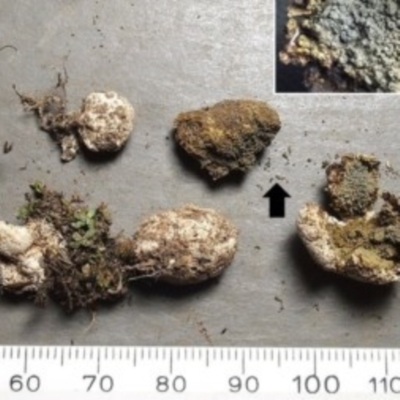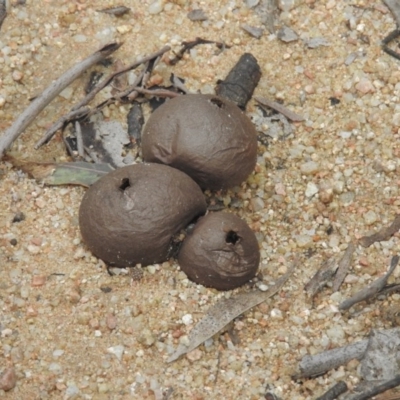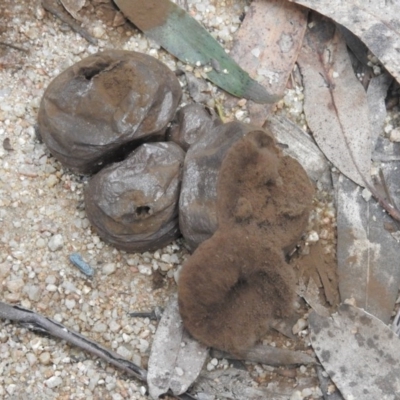Puffball & the like field guide
At maturity, the fruitbodies of the fungi in this group generally contain prodigious quantities of powdery spores. The fruitbodies may be spherical to pear-shaped or somewhat columnar in shape and range from less than a centimetre to over 30 centimetres in extent. Spores are mostly some shade of brown, from pale yellow-brown to dark brown, depending on species.
Almost all species produce their fruitbodies on the ground, a few produce them on on wood.
In the following hints you see examples of useful identification features and a few of the more commonly seen genera in which at least some species (not necessarily all) show those features.
Hints
Spore mass lilac: Calvatia.
Fruitbody over 30 centimetres in diameter: Calvatia.
Warning
If you have a flattish fruitbody, with purplish-black powdery spores inside a thin, brittle crust - check the slime mould Fuligo septica.














































































































































